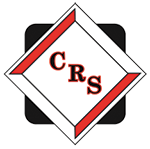Patient information management has long been a core component of modern-day health care. Each test, diagnosis, and treatment is accompanied by the creation of worthwhile data that is vital to decisions, improves patient care, and obeys legal standards. This form of information cannot possibly be effectively delivered without proper systemic organization. Here’s why Clinical Data Management Solutions and remote registry services come in.
In this blog, we’ll explore why clinical data management is essential to healthcare, how it benefits both providers and patients and how services like those from Cardiac Registry Support make managing healthcare data more accessible and more efficient.

What Is Clinical Data Management?
Clinical data management is the process of gathering, organizing, and maintaining patient records, lab results, treatment plans, and other healthcare information. It ensures that data are accurate, secure, and available to healthcare providers.
Storing information is not enough; it should be done in a manner that makes it actionable. Doctors need the latest patient histories, hospitals need accurate data to be compliant, and researchers require detailed records to advance knowledge in medicine.
Clinical Data Management Solutions are the software and systems used for this process. They streamline all the work, are error-free, and ensure safety while storing the patient’s data.
Why Clinical Data Management Is So Important?
Even in the medical field, even a tiny mistake has significant implications. An omitted allergy for a patient or an overdue report may result in wrong treatments or undesirable outcomes. Clinical data management solves this problem because information is always complete and accessible when it is needed.
Why clinical data management matters:
Enhanced Patient Care
Doctors can make the right choices with proper and up-to-date information. Treatment is carried out according to the requirements of a patient, hence more swift recovery and fewer complications
Compliance with Regulatory Standards
Healthcare institutions are regulated by strict laws governing access to patient data. In this regard, appropriate handling of data prevents any risk of penalties for violation of norms such as HIPAA.
Operational Performance
Controlled data saves healthcare professionals less time searching for patient documents, thus allowing more time with patients.
Research and Innovation Support
Clinical data analysis is performed to identify trends, improve procedures, and establish new treatment modalities.
Role of Clinical Data Management Solutions
Clinical Data Management Solutions make data handling easier for healthcare providers. These solutions automate repetitive work, decrease errors, and provide ready access to vital information.
These solutions include:
Data Automation: Automated entry and update of data, reducing the amount of manual effort and human errors.
Secure Systems: Protects patient information from unauthorized access.
Data Analysis Tools: Uncover trends and patterns for better decision-making.
Interoperability allows various systems to share data seamlessly, giving a complete picture of the patient’s health.
All these solutions are a must for healthcare facilities that have to deal with increasing amounts of data.
How Remote Registry Services Streamline Data Management
Many hospitals and clinics face difficulties in managing their clinical data. That’s where remote registry services come in.
Remote registry services enable healthcare providers to outsource data-related tasks to experts who specialize in clinical data management. Here is how remote registry services can make a difference:
Cost Savings
Hiring and training in-house staff for data management can be expensive. Remote services provide a cost-effective alternative without compromising quality.
Expert Support
Remote teams are experienced in managing complex data systems and ensuring accuracy in submissions.
Scalability
As your healthcare facility expands, so does your data. Remote registry services can quickly scale to meet your needs.
Focus on Patients
By outsourcing time-consuming tasks, healthcare providers can focus more on delivering exceptional care.
For instance, Cardiac Registry Support provides web-based data abstraction services that cover data abstraction from start to finish and, through audits, ensure that hospitals have dependable data without burdening staff.
Clinical Data Management Challenges
Clinical data management is an essential function however, not without challenges. Common areas of difficulty include:
Data Overload: The volume of data created in healthcare services can be overwhelming.
Privacy Issues: All patient information should be kept safe against any breach and unauthorized access.
Evolving Regulations: Healthcare is regulated by laws and compliance regulations, which change over time; therefore, processes need to be updated constantly.
Interoperability: Systems often lack communication with each other.
The Way Technology Assists with Challenges
Contemporary technological advancements and tools are transforming the way clinical data is dealt with, making it more reliable and efficient. Some examples include:
Electronic Health Records
Digital records supplant paper files, allowing for easy updating and access to data.
Cloud Storage
Cloud-based solutions allow for secure, scalable storage with remote access.
Artificial Intelligence
AI allows for the analysis of large datasets, making it easier to determine trends, predict outcomes, and make decisions.
Robotic Process Automation (RPA)
Applications, such as those available from Cardiac Registry Support, can automate routine activities like data entry, eliminating the likelihood of human error and saving staff time.
Tips for Better Clinical Data Management
If you’re looking to improve your clinical data management, here are some practical steps:
Choose Reliable Clinical Data Management Solutions
Invest in tools that meet your organization’s size and complexity.
Train Staff Regularly
Ensure that all members of the team understand how to use systems effectively and stay abreast of regulations.
Utilize Remote Registry Services
Outsourcing saves time and ensures that your data is accurate and compliant.
Focus on Security
Protect sensitive patient information with encryption, access controls, and regular audits.
Benefits of In-House vs. Remote Registry Services
| Feature | In-House Management | Remote Registry Services |
| Cost | High (staff, training, tools) | Lower (outsourcing expertise) |
| Accuracy | Depends on staff skills | High (managed by specialists) |
| Scalability | Limited by resources | Easily scalable |
| Focus on Care | Staff split between tasks | Full focus on patients |
| Compliance | May require frequent training | Managed by experts |
Conclusion
Clinical data management is the backbone of current healthcare. It supports the better care of patients, facilitates compliance, and drives innovations. With tools such as Clinical Data Management Solutions and remote registry services, healthcare providers can easily handle the challenges presented by data management.
If your facility is challenged with data overload or compliance issues, consider partnering with experts such as Cardiac Registry Support. Outsourcing data tasks frees up time and resources to focus on what matters most: improving patient outcomes.
These are tools and systems designed to collect, organize, and secure patient data, making it easily accessible to healthcare providers.
They handle time-consuming tasks like data entry and audits, allowing hospitals to focus on patient care while ensuring data accuracy and compliance.
Yes, reputable services like Cardiac Registry Support prioritize data security and follow strict compliance guidelines.
Absolutely. Clinical Data Management Solutions and remote registry services are scalable, thus suitable for clinics of all sizes.


